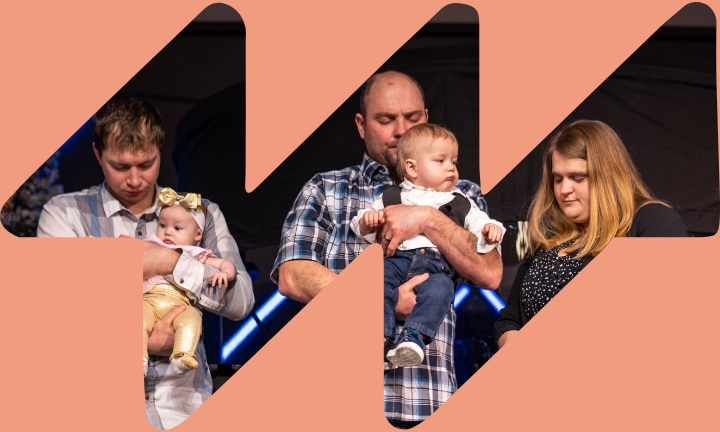The Bible is full of great stories. Especially in the Old Testament. These men of faith led lives that contain so much that I can learn from. As I read their stories, my imagination kicks into high gear and I find myself wanting more details. Where detail is lacking, my imagination fills in, but my imagination is not God inspired, so I must be careful in extracting the truth.
One of these great stories is in the New Testament. It is the Biblical account of Gabriel, who was sent by God, to Nazareth. His God given information was to inform a young girl, who was about sixteen years old, that she was to become the mother of The Son Of God. This information would change the world. This is where my imagination goes into overdrive. I study the text thoughtfully and prayerfully, seeking information that will inform me of how Mary responded to this information. Does she have any emotional reaction at all? Can we even begin to imagine how this information would impact this girl? However, the Bible is entirely silent on the subject. All I find from the text is that Mary responded to Gabriel, “behold the bondslave of the Lord. Let it be done to me according to your word”. As I read this story, my own emotions come into play as I think on the impact of the event and how it will change the world. Mary does inform the angel, “I am a virgin, I have never been with a man” but that is not important to Gabriel. He informs Mary, “the Holy Spirit will come upon you and that which is conceived in you will be by the Holy Spirit.
As I read the story, I get one more bit of information. I jump ahead of myself and the story; Mary and Joseph are in Bethlehem, and the child that Gabriel talked about has just been born…in a manger. God has sent a heavenly host to inform shepherds who were nearby, and the shepherds rushed to Bethlehem to take part in this occasion. There, in a manger meant to be used by livestock, was Mary, with the babe. Luke 2:19 gives us this tidbit about Mary’s emotions; “but Mary treasured up all these things, pondering them in her heart”. “Ponder” means “to meditate, to be absorbed in thought”.
However, there is another issue in this story that affects my imagination. Remember, Mary has been given in marriage to a man whose name is Joseph. The marriage has not yet taken place. Luke says it this way, “And Joseph went up from Galilee…to Bethlehem…along with Mary who was engaged to him and was with child.” [Luke 2:4]
The question in my mind is, how did Mary explain the visit of Gabriel to her engaged husband? How did this girl, who was engaged to be married, explain to her husband to be that she was with child? If Joseph followed Jewish law, Mary was to be stoned. She had been intimate with some man before marriage and Moses’ Law gave the verdict.
We get help from Matthew. “Now the birth of Jesus was as follows. When His mother Mary had been betrothed [engaged] to Joseph, before they came together she was found to be with child by the Holy Spirit. And Joseph, her husband, being a righteous man and not wanting to disgrace her, desired to put her away [divorce] secretly. But when he had considered this, behold, and angel of the Lord appeared to him in a dream saying, “Joseph, son of David, do not be afraid to take Mary as your wife, for that which has been conceived in her is of the Holy Spirit. And she shall bear a Son and you shall call His name Jesus, for it is He who will save His people from their sins”.
The Bible is totally silent on how Joseph received this message from Mary, except that he considered divorcing her, until in a dream an angel gave him confirmation that indeed, what Mary had told him was true; she was indeed carrying the Son of God in her womb.
We know that he was from Nazareth, we know he was a Godly and righteous man, and we know he knew he had to follow the Mosaic law, until the angel informed him. We know nothing of Mary’s lineage, and we know nothing of Joseph’s lineage, except what we get from the genealogical table in Matthew and Luke. Joseph is never again mentioned as the supposed father of Jesus. We know that he cared for and protected Jesus as a child. He is warned, again by an angel, to flee the wrath of Herod the Great, so he takes the child to Egypt. Later, he returns to Nazareth, from where they had started. Joseph provided a home and protection for the Son of God, until Jesus appeared at the Jordan before his cousin, John the Baptist. John, who has never met Jesus cries out, “behold the Lamb of God, which taketh away the sins of the world”. As I ponder this story, I can better understand why the religious rulers of Israel called Jesus an illegitimate man. They never saw the miraculous events that brought Jesus into the world. Indeed, it is impossible to grasp the story until God, through the Holy Spirit reveals it to us.
As I reflect on this event, I come to grips with the fact that God works in a different way than man works. If I can reduce this entire event down to one word, that word would be unorthodox. This is not the way we would plan for one of the greatest events of history to take place. God sent His son in the most ingenious way, using humble, unknown people to participate in His plan.
I cannot condemn Joseph for his inability to understand what Mary told him. Indeed, it was unbelievable. It took God Himself, using an angel, to convince Joseph that what Mary told him was true. In the same way, I cannot understand God. I cannot understand that I was born a sinner and that I was a sinner before I could even make a choice. It is only as I humble myself before God and ask forgiveness that through this very Babe dying on a cross for me, that I can come to know and have fellowship with the Father. I cannot make that decision by myself. It is a complex world that we live in, and in this season where we attempt to bring joy through gifts, may we humbly bow before the eternal God and allow this babe, who was the very Son of God make this season complete.



